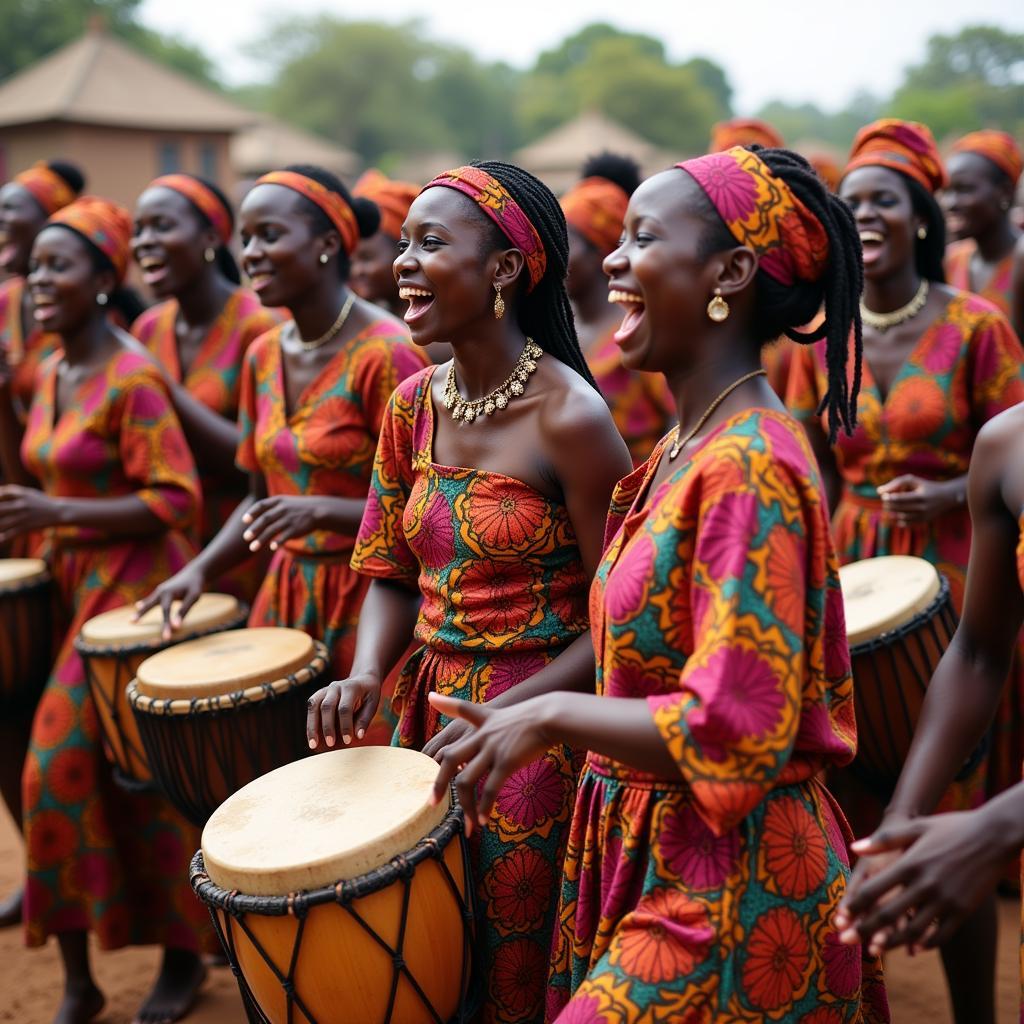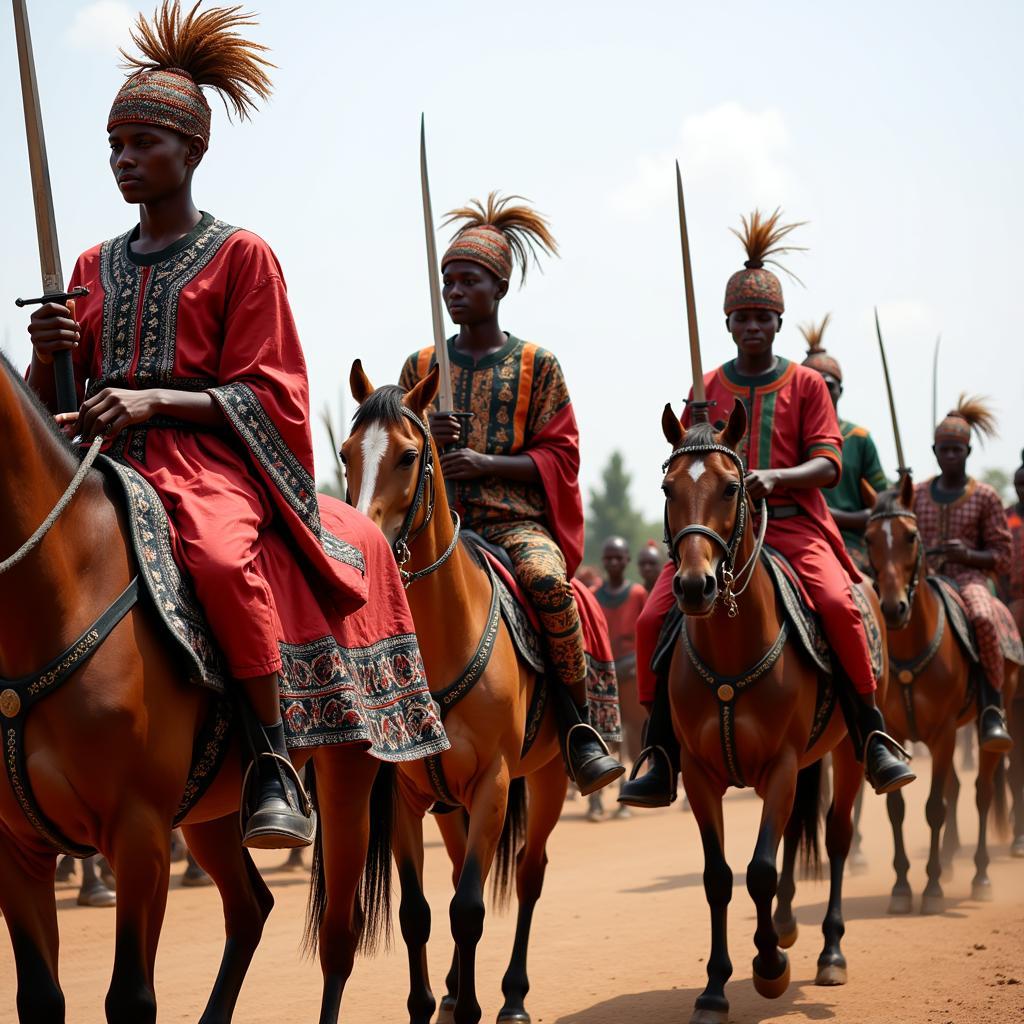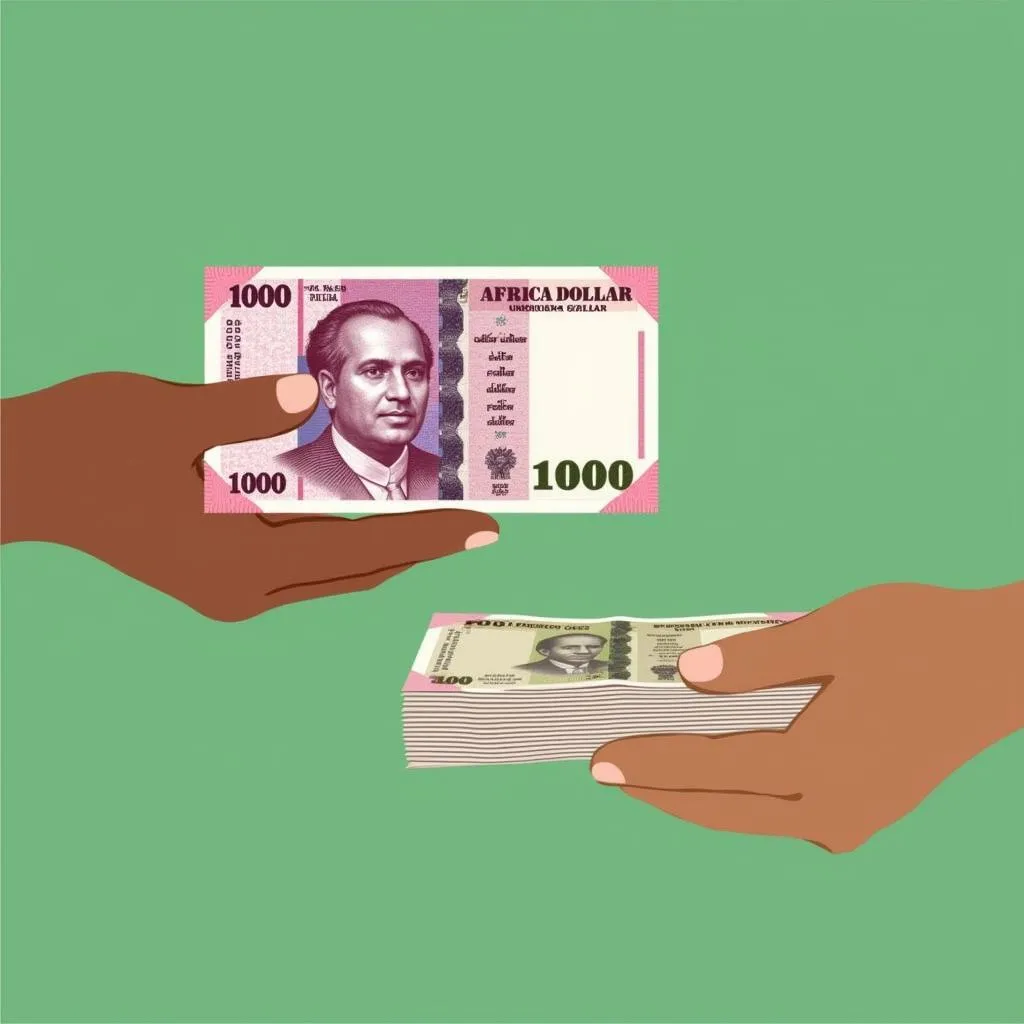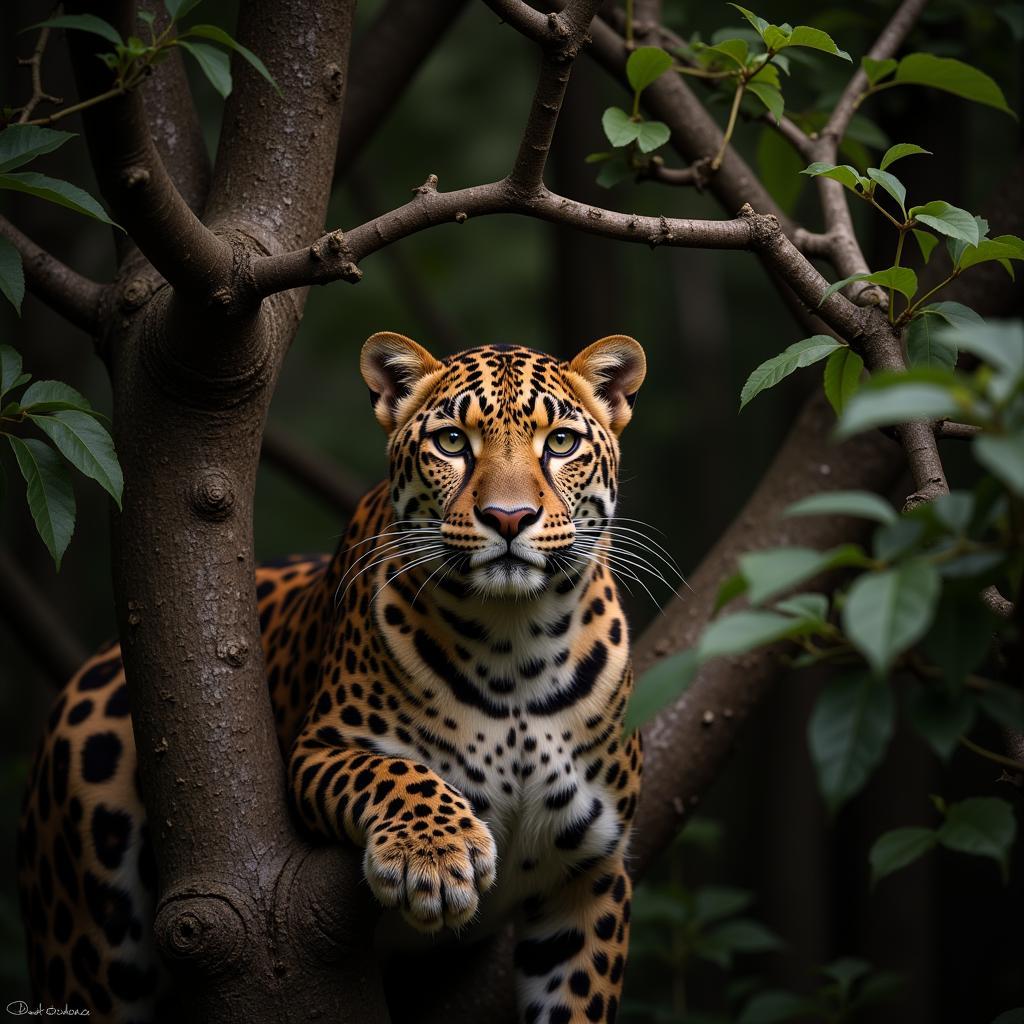A Vibrant Tapestry: Exploring African Cultural Celebrations
Africa, a continent renowned for its diverse landscapes and rich history, is a melting pot of cultures, each with its own unique traditions and vibrant celebrations. African Cultural Celebrations are more than just festive occasions; they are deeply rooted in history, spirituality, and community values, offering a glimpse into the soul of the continent.
 Celebrating African Culture With Music and Dance
Celebrating African Culture With Music and Dance
The Significance of Celebrations in African Culture
From the heart of the Sahara Desert to the lush rainforests of the Congo Basin, African cultural celebrations are deeply intertwined with the rhythm of life. They mark significant milestones, such as births, coming-of-age ceremonies, weddings, and funerals, reaffirming social bonds and passing on traditions to future generations.
These celebrations are also a way to honor ancestors, appease deities, and give thanks for blessings such as bountiful harvests or the birth of a child.
A Kaleidoscope of Cultural Events
The tapestry of African cultural celebrations is as diverse as the continent itself. Let’s explore a few captivating examples:
Masai Moran Initiation, Kenya and Tanzania
The Maasai people, known for their distinctive red shukas and nomadic lifestyle, hold a coming-of-age ceremony for young warriors called the “Eunoto.” During this multi-day celebration, young men prove their strength and courage through various trials, marking their transition into adulthood and responsibility within the community.
Durbar Festival, Nigeria
A spectacle of vibrant colors, elaborate costumes, and traditional music, the Durbar Festival is celebrated in several cities across Nigeria. This historical event, dating back centuries, showcases the rich culture and equestrian artistry of the Hausa/Fulani people, with a grand procession of horsemen paying homage to the Emir.
 Durbar Festival: Horses and Riders in Elaborate Costumes
Durbar Festival: Horses and Riders in Elaborate Costumes
Timkat, Ethiopia
Celebrated in January, Timkat commemorates the baptism of Jesus Christ in the Jordan River. This joyous occasion sees thousands of Ethiopian Orthodox Christians participate in processions, carrying sacred replicas of the Ark of the Covenant to nearby bodies of water for a symbolic re-enactment of the baptism.
Voodoo Festival, Benin
In the West African nation of Benin, where Voodoo originated, a vibrant festival dedicated to this ancient religion takes place annually in Ouidah. This celebration is a fascinating blend of spirituality, music, dance, and offerings to the Voodoo deities, offering a unique glimpse into this often-misunderstood religion.
The Power of Music and Dance
Music and dance are integral elements of African cultural celebrations, serving as powerful expressions of joy, sorrow, spirituality, and storytelling. From the rhythmic drumming of West Africa to the intricate polyphonic singing of South Africa, each region boasts its own distinctive musical traditions.
Preserving Cultural Heritage
African cultural celebrations play a crucial role in preserving the continent’s rich heritage for future generations. By passing down traditions through storytelling, music, dance, and rituals, communities ensure the continuity of their cultural identity.
“These celebrations are not just about the past,” says Dr. Abena Kyei, an expert in African cultural studies. “They are living traditions that continue to evolve and adapt, reflecting the dynamism of African societies.”
Experiencing African Cultural Celebrations
For those seeking an immersive cultural experience, witnessing an African cultural celebration firsthand is an unforgettable journey. From the vibrant colors and rhythms to the warmth and hospitality of the people, these celebrations offer a unique opportunity to connect with the soul of Africa.
Conclusion
African cultural celebrations are a testament to the continent’s rich heritage and vibrant cultural tapestry. More than just festive occasions, these celebrations are deeply rooted in history, spirituality, and community, offering a window into the soul of Africa. By preserving and celebrating these traditions, Africans are keeping their cultural heritage alive for generations to come.
FAQs
1. What is the importance of celebrations in African culture?
Celebrations are integral to African Life, marking milestones, honoring ancestors, expressing spirituality, and strengthening community bonds.
2. Are there specific times of the year when most African cultural celebrations occur?
Celebrations occur throughout the year, often tied to specific events like harvests, religious calendars, or societal milestones.
3. What are some common elements found in African cultural celebrations?
Music, dance, storytelling, vibrant costumes, traditional foods, and rituals are common elements found in many African cultural celebrations.
4. How can I learn more about specific African cultural celebrations?
Research online, consult cultural organizations, or consider visiting Africa to experience these celebrations firsthand.
5. What are some tips for respectfully experiencing an African cultural celebration?
Dress modestly, ask for permission before taking photos, be mindful of local customs, and engage with locals respectfully to learn more about their traditions.
You might also be interested in:
Need help planning your African cultural experience?
Contact us at:
Phone: +255768904061
Email: [email protected]
Address: Mbarali DC Mawindi, Kangaga, Tanzania.
Our team is available 24/7 to assist you.


